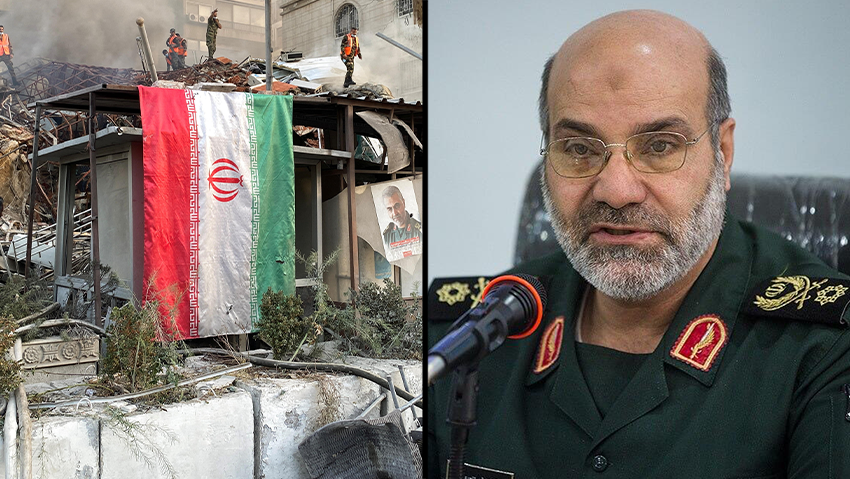U.S. intelligence assesses that Iran will respond to the high-ranking official's assassination in Damascus through its proxies in the Middle East, rather than directly, CNN reported on Tuesday, citing two sources familiar with the matter.
According to the report, Iran is cautious of dramatically escalating the conflict and does not wish to give the U.S. or its allies a reason to directly attack Iranian territory.
The report suggests that Iran and its Middle Eastern proxies do not intend to attack U.S. forces or assets in the region, but the possibility cannot be discounted since Tehran does not have full control over all proxy forces.
Regardless, the sources indicated that U.S. intelligence believes Iran has directed its militias in the Middle East to carry out a widespread combined attack against Israel, involving missiles and drones, which could occur this week.
Additionally, one source speaking to CNN mentioned a debate on whether the Iranians would wait until after Ramadan to act. Ramadan ends on Tuesday, the official may have referred to the Eid al-Fitr holiday, which concludes on Friday.
Meanwhile, Saudi news site Elaph reported Monday, citing a Western security source, that Israel would strike targets inside Iran if the Islamic Republic attacks it. According to the unverified report, the source noted that in recent days, Israel has been conducting secret Air Force drills simulating strikes on sensitive sites in Iran possibly linked to its nuclear project.
Hezbollah Secretary-General Hassan Nasrallah accused Israel of assassinating a senior Revolutionary Guards officer Mohammed Reza Zahedi last week and said Monday that the "Israeli" action has two main implications, "An attack against Iran, and the targeting of the head of the Iranian advisors in Lebanon and Syria."
Zahedi's funeral in Isfahan, Iran
In a speech during a ceremony commemorating Zahedi, Nasrallah claimed that the attack attributed to Israel in Damascus "is the most significant against Iranian advisors in years. It demonstrates the importance of these advisors' presence in Syria. The Revolutionary Guards have been in Syria and Lebanon since 1982, following the Israeli invasion of Lebanon."
Defense Minister Yoav Gallant conducted an operational assessment at the IDF headquarters in Tel Aviv earlier this week. Following the meeting, Gallant said that the defense establishment had completed preparations to respond to any scenario that might unfold with Iran, amid Israel's heightened readiness to retaliate for the assassination of the senior Iranian official in Damascus.
Over the past weekend, Gallant attempted to calm the Israeli public's panic, saying, "Preparedness, readiness, and alertness are not synonymous with panic and fear."
During a visit to the Tel Nof Air Force base, the defense minister added, "The enemy has been severely damaged everywhere and is therefore looking for ways to respond. We are prepared with multi-layered defense."
Concerns over Iranian retaliation also surfaced in a conversation between Prime Minister Benjamin Netanyahu and U.S. President Joe Biden last Thursday. According to National Security Council spokesperson John Kirby, "The president was clear, very clear, that Israel can count on the United States to assist in defending against the threats posed by Iran."






